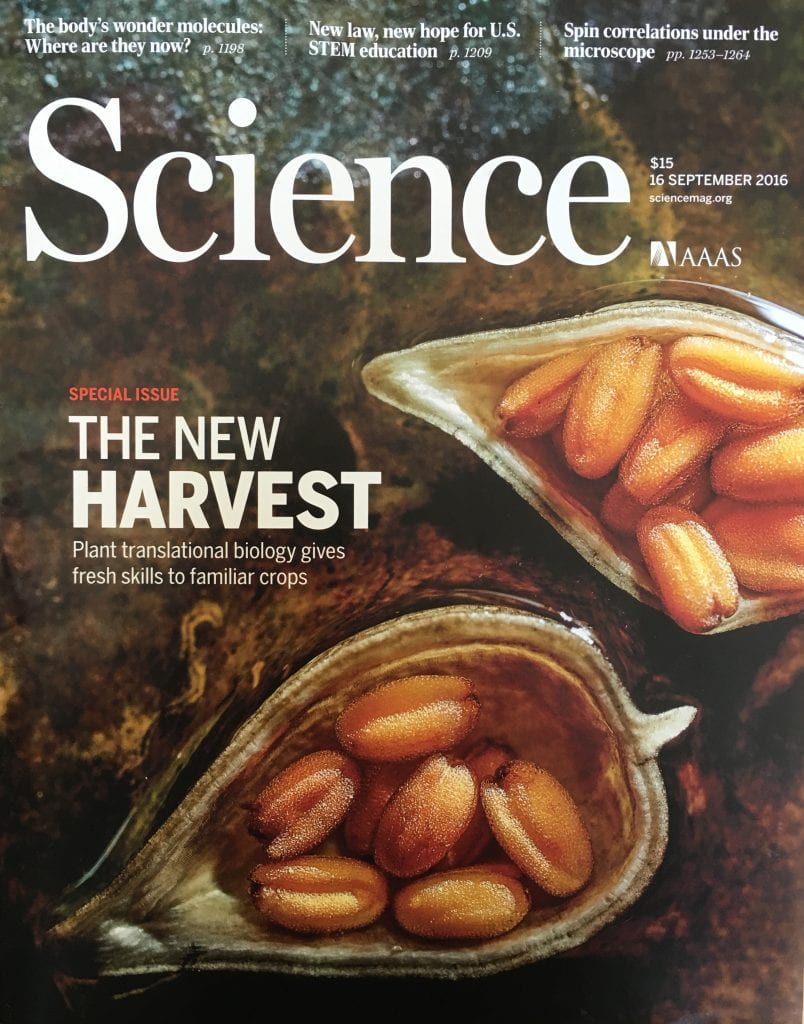The Qualifying Exam (QE) is a literature-based “general” exam that tests a student’s ability to think like an independent scientist. Key elements of the exam are demonstrating an ability to apply critical analysis to scientific problems and experiments, demonstrate fundamental biological knowledge, and effective communication of that knowledge. QEs are held before the start of the 2nd year.

Objectives:
- Gain facility with critical analysis of the primary literature
- Master the wide range of approaches, techniques, and model systems applicable to PMB research
Paper Selection:
- PMB faculty submit primary research articles they feel best represents “the best in their field” for the previous twelve months.
- 30 papers (15 plant-focuses and 15 microbiology-focused) will be selected for the exam by the PMB program directors. The goal is to have a set of papers that represent the broad spectrum of approaches and topics in plant & microbial biosciences.
- Submissions will be due August 7, to ensure that selected papers can be given to 2nd year students by August 15, prior to the start of classes.
- Students read and analyze the group of selected papers as part of Bio5723.
- If students have questions about any of the assigned papers, they can contact faculty for help. We recommend that sudents send faculty questions well before meeting with them to allow faculty time to prepare.
Preparation:
The PMB curriculum is designed to guide students in their development as independent scientists. This preparation begins in the 1st year through the integrated writing components of Bio5703: Experimental Approaches and Bio5702: Current Approaches in Plant Research.
In preparation for the QE, 2nd year students enroll in Bio5723: Seminar Plant and Microbial Biosciences in the fall semester prior to the exam. This course is a student-guided course.
- The 2 credit journal club counts towards PMB’s journal club requirement.
- Students will be in charge of distributing the papers among the group. Each student should receive a fair share of the burden.
- The presenting student writes a 1-page primer on each paper to hand out to the class prior to their presentation. The primers are short reviews of the paper’s field that hit on key highlights that frame the advance made in the presented paper. See Current Biology’s Quick Quides and Primers for examples.
- PMB faculty will also conduct a mock QE in one of the sessions to provide an example of the QE structure and expectations.
Committee Selection:
- Three faculty members will be assigned to committees based on availability with an effort made to ensure balanced composition. Ideally, committees will include at least 1 plant and 1 microbiology faculty member.
- Exam chairs will be selected from the PMB steering committee.
- Once the examination committee is selected, faculty will send their paper selections to the committee chair to avoid overlap. Each faculty member should select one plant- and one microbiology-focused paper to ensure that exams cover an equal number from each topic area.
- Students will not be told beforehand which faculty are on their exam nor will they know which 6 papers were selected for the exam.
Exam Format:
- The 6 papers selected by the committee form the basis of the ~90-minute exam. A soft 15 minute limit per paper aims to ensure that the exam proceeds in a timely manner.
- Before questioning begins, the student will leave the room to allow the committee time to discuss exam logistics and to establish the order of papers.
- The exam chair will have pdfs of all the papers available to put up on screen. For each paper, the chair should allow a minute to help the student (and the examiners) get their bearings before questioning. The faculty member who selected the paper should ask the lead question with other faculty members asking questions in a ’round-robin’ format. The 15-minute time limit should be monitored by the chair to ensure that all papers are covered in a timely manner.
- Faculty are encouraged to ask questions that test critical thinking skills and to AVOID questions focusing on memorization!
- Faculty can also ask questions on fundamentals and basic concepts that form the basis of the work in a paper. This is important because communication and fundamental knowledge are elements of the exam.
- After the exam, the student is dismissed and the committee will discuss their preliminary scores and overall student performance. The chair will draft the report summarizing the discussion and listing specific strenghts and weaknesses to support the committee’s provisional recommendation (i.e., pass or fail). The scores sheets are confidential and will not be shared with the student.
- Students will not be told their status until after the steering committee has met.
Evaluation:
- During the QE, faculty score performance using a grading rubric.
- To ensure continuity across committees, the ultimate decision on pass/fail is made by the steering committee, which meets after all exams are completed.
Outcomes:
Students will be informed of their exam outcome by e-mail after the steering committee has met. Program directors will then meet with students in-person to provide feedback about their strengths and weaknesses noted by their QE committee.
1) Pass. The student moves into dissertation status.
2) Fail. If a student fails, they will have three weeks to schedule a retake. The reading list will not change, but papers used in the first round will be eliminated from the pool. The chair of the first exam committee will serve on (but not chair) the retake exam committee.
- Following a failing outcome upon retaking the exam, students have the option to withdraw from the program or, depending on circumstances and permission of their PI, graduate with a terminal Master’s degree pending submission and defense of a Master’s thesis.
- If the student does not wish to retake the exam, it is possible to graduate with a terminal Master’s degree pending permission of their PI and submission and defense of a Master’s Thesis.